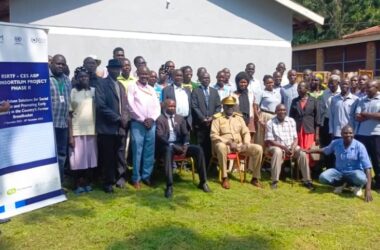By Gama Hassan Oscas
In the bustling city of Juba, South Sudan, a distressing trend has emerged that calls for our attention and reflection. It is disheartening to witness the neglect of sick and ailing individuals by their own relatives and friends, only for the same people to spring into action and lavish resources on extravagant funerals once the person has passed away. This modern phenomenon not only deviates from the rich traditions and customs of the South Sudanese people but also contradicts the principles of compassion and care that should be ingrained in our societies. Furthermore, this practice clashes with Christian teachings that emphasize the importance of supporting the living rather than focusing solely on the departed.
Neglecting the Sick: One of the most disconcerting aspects of this trend is the apathy shown towards sick individuals, even when their ailments are curable or treatable. It is unfortunate that instead of rallying around the sick and providing the support they desperately need, friends and relatives choose to keep their distance, as if the mere act of acknowledging illness is somehow contagious. The absence of visits, well wishes, and practical assistance for those battling sickness is a painful reflection of our society’s moral decay.
Celebrating the Dead: The moment news of an individual’s passing reaches the public, social media platforms become flooded with an outpouring of condolences and rest-in-peace messages. Simultaneously, funds are readily mobilized for the purchase of expensive coffins and the organization of lavish funerals. It begs the question: Why do we wait until it is too late to express our love and appreciation for those who are no longer with us? Are these elaborate ceremonies truly in line with our traditions, customs, and religious beliefs?
Discrepancies with South Sudanese Traditions and Christian Values: This evolving tradition of grandiose funeral ceremonies starkly contrasts with the values and customs that have been passed down through generations in South Sudan. Our ancestors valued communal support, unity, and caring for one another, especially in times of illness. They would be perplexed by this newfound obsession with extravagant funerals while the sick, are left to suffer in isolation.
Moreover, for those who consider themselves Christians, it is essential to reflect on the teachings of the Bible. In the book of Ecclesiastes, it is clearly stated that the dead know nothing and remember nothing. The rituals and overnights conducted during these ceremonies hold no true spiritual significance, but rather burden the families of the deceased both financially and emotionally. It is unchristian to prioritize extravagant funerals over providing support and care to the living.
The Haunting Legacy: This modern phenomenon would undoubtedly haunt the departed if they were aware of the excessive measures taken in their honor. Instead of enjoying such ceremonies from the grave, they would question why their loved ones failed to provide the same support and care during their time of need. It is a cruel irony that the deceased are showered with resources they never received in life, highlighting the moral decay of the twenty-first century.
Conclusion: The growing trend of neglecting the sick and celebrating the dead through lavish funeral ceremonies in Juba is a concerning phenomenon. It deviates from the traditions, customs, and values that have long defined the South Sudanese people. We must reevaluate our priorities and focus on providing care and support to the living rather than indulging in grandiose displays of mourning. Let us remember that true compassion lies in our actions towards the sick, and that the departed would have cherished our love and support while they were still with us. It is time to rekindle the spirit of communal care and unity that our ancestors held dear.
The writer can be reached on the email: oscarsgama @gmail.com




